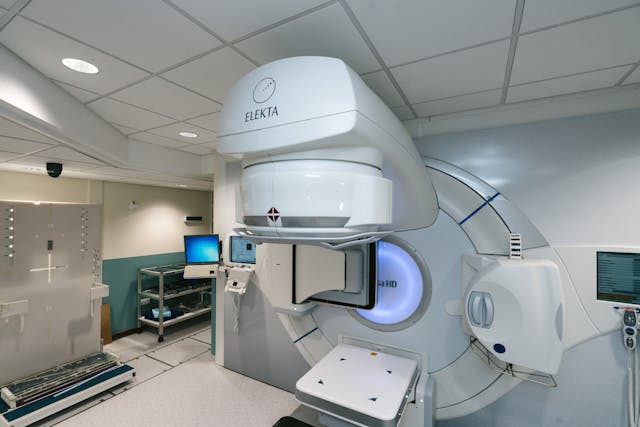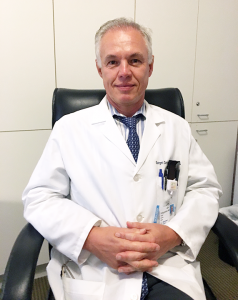CALL TODAY 646-933-3224 | EMAIL

Surgical Precision, Compassionate Care


Surgical Experts Dedicated to Improving Lives
At Lenox Hill Surgeons LLP, our dedicated surgeons and medical professionals provide compassionate care with the highest ethical & professional standards. In our state of the art facility, we offer surgical services using only the most cutting edge and current procedures and treatments. We specialize in general surgery, with special expertise in minimally invasive surgery. Minimally invasive surgery typically allows patients to experience easier recovery than traditional open surgery. It also allows for more precise and less traumatic surgery. When minimally invasive surgery is not an option, we are also highly experienced in traditional open surgical procedures.
Our doctors are experienced and skilled surgeons having undergone extensive training in school, residency and fellowships. They all practice medicine with ethically, compassionately and have superb bedside manner. In the operating room they all exhibit precision mechanical abilities, analytical thinking and the ability to visualize tissue in three dimensions. These skills allow our surgeons to be some of the most dexterous and skilled professionals in New York City.
Call us: 646-933-3224
Visit our main website at https://LenoxHillSurgeons.com/
Blog Posts are Below:
Cancer Prevention and Early Detection: How Surgery Can Play a Life-Saving Role
What role does surgery play in cancer prevention and early detection? Cancer remains one of the leading causes of death worldwide, but advancements in medical science have significantly improved the ability to detect and treat it early. One of the most effective ways to combat cancer is through prevention and early detection, which can dramatically increase survival rates.
Surgery plays a crucial role in both preventing certain types of cancer and treating early-stage cancers before they spread. This guide will explore how surgery is used for cancer prevention, the importance of early detection, and how surgical interventions can be life-saving.

The Importance of Cancer Prevention
While some cancers develop due to genetic predisposition, many are preventable through lifestyle changes and proactive medical interventions. Taking steps to reduce risk factors and undergo regular screenings can significantly lower the likelihood of developing cancer.
Key Cancer Prevention Strategies
- Avoid Tobacco: Smoking is the leading cause of lung cancer and contributes to cancers of the throat, mouth, pancreas, and bladder. Avoiding tobacco significantly reduces cancer risk.
- Maintain a Healthy Diet: Eating a diet rich in fruits, vegetables, whole grains, and lean proteins while limiting processed foods and red meats can help lower cancer risk.
- Exercise Regularly: Engaging in physical activity helps maintain a healthy weight, reducing the risk of cancers like breast, colon, and endometrial cancer.
- Limit Alcohol Consumption: Excessive alcohol use increases the risk of cancers in the liver, breast, throat, and colon. Moderation is key.
- Protect Yourself from the Sun: Skin cancer, including melanoma, is often caused by excessive UV exposure. Wearing sunscreen and protective clothing can reduce the risk.
- Get Vaccinated: Certain cancers, such as cervical and liver cancer, are linked to viruses like HPV and hepatitis B. Vaccination can help prevent these infections.
- Undergo Regular Screenings: Detecting cancer in its early stages can save lives. Screenings like mammograms, Pap smears, colonoscopies, and prostate exams are critical.
How Surgery Plays a Role in Cancer Prevention
For individuals at high risk of developing cancer, surgery can be used as a preventive measure to remove tissue that has a high likelihood of becoming cancerous. This is known as prophylactic surgery or risk-reducing surgery.
Common Preventive Surgeries for Cancer
- Prophylactic Mastectomy: Women with a strong family history of breast cancer or BRCA gene mutations may choose to have their breasts removed to reduce their risk of developing cancer.
- Prophylactic Oophorectomy: The removal of the ovaries can help prevent ovarian cancer in women at high genetic risk.
- Colon Polyp Removal: In individuals with a history of polyps or familial adenomatous polyposis (FAP), removing polyps during a colonoscopy or performing a colectomy can prevent colorectal cancer.
- Thyroidectomy: For individuals with genetic predisposition to thyroid cancer, removing the thyroid before cancer develops can be a proactive strategy.
- Hysterectomy: Women with a high risk of uterine or cervical cancer may undergo a hysterectomy (removal of the uterus) to eliminate the risk.
The Role of Surgery in Early Cancer Detection
Early cancer detection allows for more effective treatment and a higher chance of survival. In some cases, surgical procedures are used to detect cancerous or pre-cancerous tissues.
Diagnostic Surgical Procedures
- Biopsy: A biopsy is a procedure where a small sample of tissue is removed and analyzed to check for cancerous cells. This is commonly used for breast lumps, suspicious skin lesions, and enlarged lymph nodes.
- Endoscopic Surgery: Using a flexible tube with a camera, surgeons can remove small tissue samples from the digestive tract, lungs, or bladder for examination.
- Lymph Node Dissection: In cases where cancer is suspected to have spread, nearby lymph nodes may be surgically removed and examined to determine the extent of the disease.

Surgical Treatment for Early-Stage Cancers
If cancer is detected at an early stage, surgery is often the primary treatment. Removing tumors before they have a chance to spread can significantly improve survival rates.
Common Surgeries for Early-Stage Cancer
- Lumpectomy: A lumpectomy removes a tumor while preserving the rest of the breast. This is an effective treatment for early-stage breast cancer.
- Colectomy: For colon cancer detected in its early stages, removing part or all of the colon may prevent the spread of cancerous cells.
- Prostatectomy: A prostatectomy removes the prostate gland in men diagnosed with localized prostate cancer.
- Partial or Total Nephrectomy: In early-stage kidney cancer, a nephrectomy removes part or all of the affected kidney to prevent further tumor growth.
- Skin Cancer Excision: Early-stage melanoma and other skin cancers can be surgically removed before they spread deeper into the skin layers.
Minimally Invasive Surgery for Cancer Treatment
Advancements in surgical technology now allow for minimally invasive procedures, reducing recovery time and improving patient outcomes. Many cancer surgeries can now be performed using laparoscopy or robotic-assisted surgery, which offer numerous benefits:
- Smaller incisions and reduced scarring
- Shorter hospital stays and faster recovery times
- Lower risk of infection and complications
- More precise removal of cancerous tissue with robotic-assisted surgery
Recovery and Post-Surgical Care
Following cancer surgery, patients may need additional treatments such as radiation therapy, chemotherapy, or immunotherapy to ensure all cancer cells are eliminated. Recovery varies depending on the type of procedure, but most patients can expect:
- Hospital stays ranging from a few days to a week, depending on the procedure
- Pain management with medication
- Follow-up appointments to monitor for any signs of recurrence
- Rehabilitation and physical therapy for certain types of cancer surgeries
- Emotional and psychological support, as cancer treatment can be both physically and mentally challenging
Cancer Prevention and Early Detection: Conclusion
Cancer prevention and early detection are essential in reducing cancer-related deaths. By making healthy lifestyle choices, undergoing regular screenings, and seeking medical advice when symptoms arise, individuals can take proactive steps in reducing their cancer risk. For those at high risk, preventive surgeries can provide peace of mind and significantly lower the chances of developing certain cancers.
If you or a loved one have concerns about cancer risk, early detection, or surgical treatment options, consulting with a qualified general surgeon can provide clarity and guidance. Early intervention saves lives.
For expert consultation and state-of-the-art surgical care in Manhattan, contact Lenox Hill Surgeons today to schedule an appointment.
Contact Information
LENOX HILL SURGEONS LLP
155 East 76th Street
Suite 1C
New York, NY 10021
646-933-3224
lenoxhillsurgeons@gmail.com
Visit our website for more information:
https://lenoxhillsurgeons.com/
Traumatic Brain Injury and Surgery: When Is Surgical Intervention Necessary?
Traumatic brain injury (TBI) is a serious medical condition that occurs when an external force injures the brain. It can result from falls, vehicle accidents, sports injuries, or violent incidents. While mild TBIs, such as concussions, often heal with rest and medical observation, severe cases may require surgical intervention to prevent further brain damage, relieve pressure, and improve the chances of recovery.
March is Traumatic Brain Injury Awareness Month, making it an essential time to discuss how surgical treatment plays a crucial role in managing severe brain injuries. This guide explores when surgery is necessary, the different types of surgical procedures, and what patients and families can expect during recovery.

Understanding Traumatic Brain Injury
TBI is classified based on severity, which can range from mild to severe. Mild TBIs, often referred to as concussions, typically cause temporary symptoms such as headaches, dizziness, and confusion. Moderate to severe TBIs, however, can lead to long-term complications, cognitive impairment, and in some cases, life-threatening conditions.
Common causes of TBI include direct trauma to the head, rapid acceleration or deceleration (such as in car accidents), and penetrating injuries from objects like bullets or shrapnel. Symptoms can vary but may include loss of consciousness, seizures, slurred speech, memory loss, and profound confusion.
When Is Surgery Necessary for TBI?
Not all TBIs require surgical intervention, but in certain cases, surgery becomes a life-saving procedure. The primary reasons a patient may need brain surgery after a traumatic injury include:
- Hematomas and Brain Bleeds: A collection of blood, known as a hematoma, can form in or around the brain due to trauma. If the hematoma is large or rapidly expanding, it can increase intracranial pressure and may need to be surgically removed.
- Skull Fractures: Some skull fractures, especially depressed skull fractures where bone fragments press into the brain, require surgery to repair the skull and prevent further damage.
- Brain Swelling (Edema): Following a severe injury, the brain may swell, increasing pressure inside the skull. Surgery may be required to relieve this pressure and prevent brain damage.
- Penetrating Brain Injuries: Objects that penetrate the skull, such as bullets or sharp debris, may require surgical removal to prevent infection and further trauma.
- Hydrocephalus: This condition, where cerebrospinal fluid builds up in the brain, can occur after a TBI. A surgical procedure may be needed to drain excess fluid and relieve pressure.
Types of Surgical Procedures for TBI
Depending on the severity and nature of the brain injury, different surgical techniques may be used to stabilize the patient and improve outcomes. Below are the most common types of brain surgeries performed for TBI:
1. Craniotomy
A craniotomy is a surgical procedure where a section of the skull is temporarily removed to access the brain. This procedure is performed to remove blood clots, stop bleeding, or relieve swelling. After the surgery, the bone flap is typically replaced.
2. Decompressive Craniectomy
In cases of severe brain swelling, a decompressive craniectomy may be performed. This procedure involves removing part of the skull to give the swollen brain room to expand, reducing pressure and preventing further damage. The removed skull section is often stored and reattached once swelling subsides.
3. Hematoma Removal
If a large hematoma forms inside or outside the brain, surgery may be required to remove the clot. This helps relieve pressure and prevents additional damage to brain tissue.
4. Skull Fracture Repair
Surgery may be needed to correct depressed skull fractures, where broken bone fragments press into the brain. The surgeon will reposition the bone fragments or replace them with artificial materials if necessary.
5. Ventriculostomy and Shunt Placement
For cases of hydrocephalus, where cerebrospinal fluid builds up in the brain, a ventriculostomy may be performed. This procedure involves placing a catheter in the brain’s ventricles to drain excess fluid. Alternatively, a shunt may be implanted to divert fluid to another part of the body for absorption.

Recovery and Rehabilitation After Brain Surgery
Recovering from brain surgery after a TBI varies depending on the severity of the injury and the type of procedure performed. The immediate goals of treatment focus on stabilizing the patient, preventing further complications, and beginning rehabilitation.
Hospitalization and Immediate Post-Surgery Care
After surgery, patients are closely monitored in an intensive care unit (ICU) to manage swelling, prevent infection, and ensure stable brain function. Some patients may require ventilators to assist with breathing, and imaging tests (CT scans or MRIs) are performed to assess healing.
Rehabilitation Process
Rehabilitation is a crucial part of recovery, especially for patients with cognitive or motor impairments following surgery. Common rehabilitation therapies include:
- Physical Therapy: Helps patients regain movement, strength, and coordination.
- Occupational Therapy: Focuses on relearning daily activities such as dressing, eating, and writing.
- Speech Therapy: Aids in improving communication and swallowing functions for patients affected by brain trauma.
- Cognitive Therapy: Supports memory, problem-solving, and emotional regulation after a brain injury.
Long-Term Outlook for TBI Patients
The long-term prognosis for TBI patients depends on factors such as the severity of the injury, the speed of medical intervention, and the effectiveness of rehabilitation. Some individuals make a full recovery, while others may experience lasting cognitive or physical impairments.
Regular follow-ups with neurosurgeons and neurologists help monitor progress and address any complications that may arise, such as seizures, personality changes, or ongoing headaches. Many patients benefit from ongoing therapy and support from family members and caregivers.
Preventing Traumatic Brain Injuries
While not all TBIs can be prevented, certain precautions can reduce the risk of serious head injuries:
- Always wear a seatbelt while driving and ensure children are in properly secured car seats.
- Use helmets when participating in contact sports, cycling, or riding motorcycles.
- Ensure living spaces are free of tripping hazards to prevent falls, especially for older adults.
- Avoid risky behaviors, such as driving under the influence of alcohol or engaging in high-risk activities without proper safety measures.
- Educate children and athletes about the dangers of head injuries and the importance of reporting symptoms after a blow to the head.
Conclusion: Seeking Immediate Care for TBI
Traumatic brain injuries can have life-altering consequences, and timely medical attention is critical in preventing further damage. While not all TBIs require surgery, those that do often involve complex procedures aimed at saving lives and preserving brain function.
If you or a loved one experiences a traumatic head injury, seek immediate medical attention. Early intervention and expert surgical care can significantly improve the chances of recovery.
For those in need of specialized surgical treatment for traumatic brain injuries in Manhattan, contact Lenox Hill Surgeons today to schedule a consultation and learn more about our advanced neurosurgical care.
Contact Information
LENOX HILL SURGEONS LLP
155 East 76th Street
Suite 1C
New York, NY 10021
646-933-3224
Dr.Ginberg@lenoxhillsurgeons.com
Visit our website for more information: https://lenoxhillsurgeons.com/
Colorectal Cancer Awareness: The Importance of Screening and Surgical Treatment Options
 Since March is Colorectal Cancer Awareness Month, it’s the perfect time to educate individuals about the importance of regular screenings and the role surgery plays in treating this disease. Colorectal cancer is one of the most common cancers worldwide, affecting both men and women. Early detection through routine screening and timely surgical intervention can significantly improve survival rates and prevent complications.
Since March is Colorectal Cancer Awareness Month, it’s the perfect time to educate individuals about the importance of regular screenings and the role surgery plays in treating this disease. Colorectal cancer is one of the most common cancers worldwide, affecting both men and women. Early detection through routine screening and timely surgical intervention can significantly improve survival rates and prevent complications.
This guide will cover colorectal cancer risk factors, screening methods, and surgical treatment options to help patients understand their choices for prevention and treatment.
Understanding Colorectal Cancer: Risk Factors and Symptoms
Colorectal cancer begins in the colon or rectum and often develops from abnormal growths known as polyps. While some polyps remain benign, others can turn cancerous over time, making early detection crucial.
Risk Factors for Colorectal Cancer
Certain factors can increase the risk of developing colorectal cancer. These include:
- Age: The majority of colorectal cancer cases occur in individuals over the age of 50.
- Family History: A family history of colorectal cancer or polyps increases the risk of developing the disease.
- Diet: A diet high in red and processed meats and low in fiber has been linked to an increased risk.
- Obesity and Sedentary Lifestyle: Lack of physical activity and excess body weight can contribute to higher cancer risk.
- Smoking and Alcohol Use: Heavy alcohol consumption and smoking are associated with a greater risk of colorectal cancer.
- Inflammatory Bowel Disease (IBD): Conditions like Crohn’s disease and ulcerative colitis increase the likelihood of colorectal cancer.
Common Symptoms of Colorectal Cancer
Colorectal cancer symptoms often appear in the later stages, making regular screening vital for early detection. Some common symptoms include:
- Persistent changes in bowel habits, including diarrhea or constipation
- Blood in the stool or rectal bleeding
- Unexplained weight loss
- Abdominal discomfort, cramps, or bloating
- Fatigue and weakness
- A feeling of incomplete bowel movements
Since these symptoms can be caused by various conditions, it’s essential to consult a healthcare provider for proper evaluation.

The Importance of Colorectal Cancer Screening
Screening tests help detect colorectal cancer early, often before symptoms appear. When detected in its early stages, colorectal cancer is highly treatable.
Recommended Screening Methods
The American Cancer Society recommends that individuals at average risk begin colorectal cancer screening at age 45. Those with higher risk factors may need to start screening earlier. Screening options include:
- Colonoscopy: A procedure where a thin, flexible tube with a camera examines the colon and rectum for polyps or cancerous growths. If polyps are found, they can be removed during the procedure.
- Fecal Immunochemical Test (FIT): A non-invasive stool test that detects hidden blood, which may indicate cancer or polyps.
- Stool DNA Test: This test detects abnormal DNA in stool samples, which may indicate colorectal cancer.
- CT Colonography (Virtual Colonoscopy): A special CT scan that provides detailed images of the colon and rectum to check for abnormalities.
- Sigmoidoscopy: A procedure similar to a colonoscopy but only examines the lower part of the colon.
Surgical Treatment Options for Colorectal Cancer
For patients diagnosed with colorectal cancer, surgery is often the primary treatment, especially for localized tumors. The type of surgery performed depends on the size, stage, and location of the tumor.
Types of Colorectal Cancer Surgery
- Polypectomy: If cancer is detected in a polyp during a colonoscopy, it may be removed immediately using specialized instruments.
- Local Excision: Early-stage cancers that haven’t spread beyond the superficial layers of the colon or rectum may be removed using a minimally invasive approach.
- Colectomy: A colectomy involves removing a section of the colon containing the tumor. The healthy ends of the colon are then reconnected.
- Proctectomy: In cases of rectal cancer, part or all of the rectum may be removed, depending on the tumor’s location.
- Colostomy or Ileostomy: If reconnecting the intestines isn’t possible immediately after surgery, a temporary or permanent stoma may be created to allow waste to exit the body.
Minimally Invasive Techniques in Colorectal Surgery
Many colorectal cancer surgeries can now be performed using minimally invasive techniques, reducing recovery time and surgical risks. These approaches include:
- Laparoscopic Surgery: Small incisions are made, and a camera guides the surgeon in removing cancerous tissue with precision.
- Robotic-Assisted Surgery: Robotic technology enhances precision and control, making it an effective option for colorectal procedures.
- Transanal Endoscopic Microsurgery (TEM): A minimally invasive technique used for removing small tumors in the rectum.
Recovery and Post-Surgical Care
Recovery from colorectal surgery depends on the type of procedure performed, the patient’s overall health, and whether complications arise. Patients can expect:
- Hospital Stay: A hospital stay of a few days to a week is typical, depending on the type of surgery.
- Dietary Adjustments: Patients may need to follow a special diet temporarily to allow the digestive system to heal.
- Pain Management: Pain medications are prescribed to manage discomfort after surgery.
- Physical Activity: Light movement is encouraged to prevent blood clots, but strenuous activity should be avoided for several weeks.
- Follow-Up Care: Regular follow-ups with a surgeon and oncologist help monitor recovery and detect any potential recurrence.

Preventing Colorectal Cancer
While surgery is an effective treatment for colorectal cancer, prevention is always the best approach. Some steps to lower your risk include:
- Eating a Healthy Diet: A diet rich in fiber, fruits, and vegetables while limiting red and processed meats can reduce cancer risk.
- Staying Active: Regular physical activity can help lower the risk of colorectal cancer.
- Maintaining a Healthy Weight: Obesity is a known risk factor for colorectal cancer.
- Quitting Smoking and Limiting Alcohol: Reducing tobacco and alcohol use can significantly decrease cancer risk.
- Getting Regular Screenings: Screening is the most effective way to detect colorectal cancer early when it is most treatable.
Conclusion: Take Action for Colorectal Cancer Awareness
Colorectal cancer is a serious but highly preventable disease with early detection and appropriate treatment. Regular screenings, a healthy lifestyle, and timely surgical intervention can significantly improve outcomes and save lives. If you or a loved one are experiencing symptoms or are due for screening, consult with a colorectal specialist today.
For expert colorectal cancer screening and surgical treatment in Manhattan, contact Lenox Hill Surgeons today to schedule a consultation.
Contact Information
LENOX HILL SURGEONS LLP
155 East 76th Street
Suite 1C
New York, NY 10021
646-933-3224
Dr.Ginberg@lenoxhillsurgeons.com
Visit our website for more information: https://lenoxhillsurgeons.com/
Lenox Hill Surgeons LLP, Expert Surgeons in New York City’s Upper East Side
 Welcome to the official blog of Lenox Hill Surgeons LLP, dedicated and highly skilled NYC general surgeons committed to providing exceptional care to patients in New York City. We understand that surgical procedures can be daunting, and our mission is to offer not only cutting-edge surgical expertise but also a compassionate and personalized approach to every individual who walks through our doors.
Welcome to the official blog of Lenox Hill Surgeons LLP, dedicated and highly skilled NYC general surgeons committed to providing exceptional care to patients in New York City. We understand that surgical procedures can be daunting, and our mission is to offer not only cutting-edge surgical expertise but also a compassionate and personalized approach to every individual who walks through our doors.
At Lenox Hill Surgeons LLP, we believe in the power of minimally invasive techniques, utilizing the latest advancements in laparoscopic and robotic surgery to ensure faster recovery times, reduced pain, and minimal scarring. Our surgeons have extensive experience and a dedication to staying at the forefront of surgical innovation.
Meet Our Expert Surgeons
We’re proud to introduce two of our founding partners, Dr. Sergei Dolgopolov and Dr. Roman Grinberg, whose combined experience and commitment to patient care are the cornerstones of our practice.
Dr. Sergei Dolgopolov
 Dr. Dolgopolov brings a wealth of experience and a truly international perspective to Lenox Hill Surgeons. With a distinguished career spanning decades, he graduated with Honors and Science Awards from Sechenov Moscow Medical School in 1983. His surgical training began in urology at Moscow Medical Academy Hospital Center and continued with extensive experience in clinical research and reconstructive surgery at Burdenko Central Military Hospital in Moscow, where he aided war victims.
Dr. Dolgopolov brings a wealth of experience and a truly international perspective to Lenox Hill Surgeons. With a distinguished career spanning decades, he graduated with Honors and Science Awards from Sechenov Moscow Medical School in 1983. His surgical training began in urology at Moscow Medical Academy Hospital Center and continued with extensive experience in clinical research and reconstructive surgery at Burdenko Central Military Hospital in Moscow, where he aided war victims.
Dr. Dolgopolov further honed his skills in the United States, completing a residency and chief residency at SUNY Downstate Health Science Center with Honors. He served as a surgical attending and clinical assistant professor at SUNY Downstate before joining Surgical Associates of New York, LLP, and later, Lenox Hill Surgeons, LLP.
His expertise lies in minimally invasive, laparoscopic, robotic, general, and oncology surgery. He is also an assistant professor of surgery at Mount Sinai School of Medicine and Lenox Hill Hospital, demonstrating his commitment to both patient care and surgical education.
Dr. Roman Grinberg
 Dr. Grinberg is a highly skilled general, minimally invasive, and robotic surgeon affiliated with Lenox Hill Hospital. He earned his medical degree from Russian State Medical University in 1999 and subsequently pursued research at Beth Israel Medical Center in New York City. He completed his general surgery residency at Conemaugh Memorial Medical Center, an affiliate of Temple University School of Medicine, and a minimally invasive fellowship at Staten Island University Hospital.
Dr. Grinberg is a highly skilled general, minimally invasive, and robotic surgeon affiliated with Lenox Hill Hospital. He earned his medical degree from Russian State Medical University in 1999 and subsequently pursued research at Beth Israel Medical Center in New York City. He completed his general surgery residency at Conemaugh Memorial Medical Center, an affiliate of Temple University School of Medicine, and a minimally invasive fellowship at Staten Island University Hospital.
Dr. Grinberg has held faculty positions and served as an Assistant Professor of Surgery at Hofstra University School of Medicine. His passion for minimally invasive and robotic surgery is evident in his dedication to providing the best possible care for his patients.
As Dr. Grinberg states, “My specialty and interest are minimally invasive and robotic general surgery. I sincerely believe that the ability granted to me by the American College of Surgeons, to take care of my patients, is a true gift and a privilege. The knowledge and skills that I have learned during my training, along with my experience and personal qualities as a physician that is truly dedicated to my profession, continues to help me provide the best and most personalized care for each and every patient.”
Our Commitment to You
At Lenox Hill Surgeons, we are dedicated to:
- Providing expert surgical care: Our surgeons are highly trained and experienced in the latest surgical techniques.
- Utilizing minimally invasive procedures: We prioritize minimally invasive approaches whenever possible to reduce recovery time and improve patient outcomes.
- Offering personalized care: We understand that every patient is unique, and we tailor our treatment plans to meet individual needs.1
- Maintaining a compassionate and supportive environment: We strive to create a comfortable and reassuring experience for our patients.
We invite you to explore our website, LenoxHillSurgeons.com, to learn more about our services and our team. We look forward to providing you with the highest quality surgical care.
Stay tuned for future blog posts where we will delve deeper into specific surgical procedures, patient care tips, and advancements in surgical technology.
For More Information or to schedule a consultation, please contact us:
LENOX HILL SURGEONS, LLP
155 East 76th Street
Suite 1C
New York, NY 10021
646-933-3224
Dr.Grinberg@lenoxhillsurgeons.com













